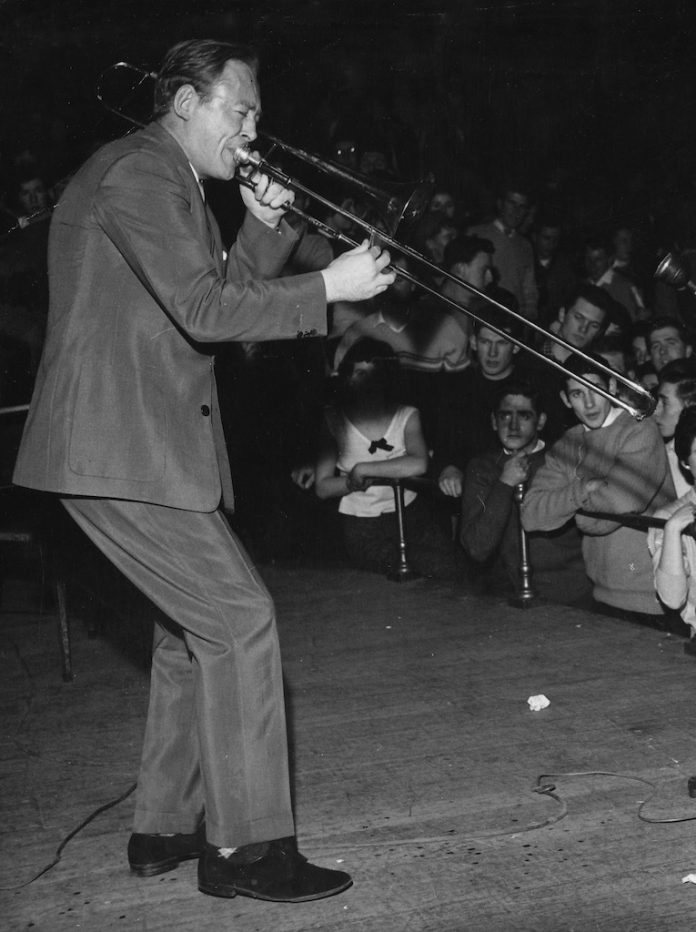Chris Barber, often regarded as the godfather of modern British popular music thanks to his introduction of US blues artists into the UK, died 2 March, after suffering from dementia. He had announced his retirement in 2019, having led a band almost continuously for 70 years.
He brought blues artists such as Sister Rosetta Tharpe, Sonny Terry and Brownie McGhee and Muddy Waters to the UK, feeding the burgeoning British blues boom of the early 1960s.
His musical journey had begun in 1949 when, inspired by the King Oliver Creole Jazz Band, he formed his New Orleans Jazz Band at the age of 19. He was then a semi pro, good at maths, and had done initial training as an actuary. Presented in a 2003 interview for Jazz Review with the oft-drawn link between maths and music he said “I think you’d have an easy time linking maths and Bach, and a pretty hard time linking maths and Archie Shepp.”
He turned full-time musician after leaving his insurance office job in 1951, leading Chris Barber’s Jazz Band on its first professional date in December 1953. The band went on to become one of Europe’s most successful traditional jazz bands.
The Barber band’s first LP, the 1954 New Orleans Joys, included Rock Island Line, a skiffle piece sung by the band’s banjoist Lonnie Donegan. The song launched Donegan as a chart-topping singer and helped bring the Barber band to the USA, thus marking, as the Barber literature points out, a return of coals to Newcastle long before the Beatles took their vision of US popular music to the country a few years later.
The skiffle hit didn’t make Barber rich. He told this writer in the same 2003 JR interview: “We were on a straight fee. We got £75 for the album, or £9 a tune. Decca made a lot of money out of it though and Lonnie made his name.” Barber’s own success came through hard work and a distinctive and eclectic repertoire that extended into African music, R&B, Latin American, jazz-rock and even, in its 1970s heyday, free jazz, while keeping the main focus on his original inspirations.
In the early 60s, reflecting the local blues boom, the Barber band had reformed as the Chris Barber Jazz and Blues Band, blending brass, reeds and electric guitar. Later, other Barber incarnations appeared, often working in Germany and Holland as much as the UK.
In 2010 the 10-piece Big Chris Barber Band arrived, the augmented lineup allowing the group to do full justice to Duke Ellington arrangements by band member Bob Hunt. That band was set to tour the UK and Germany in 2019 but Chris suffered a fall and the tour wasn’t realised.
Barber was also keen on motor sport, owning two vintage Lagondas. He was himself a racer, driving a Lotus Mark IX and then a prototype Lotus Elite, supplied by Colin Chapman. His band often played during post-race celebrations at the British F1 Grand Prix.
A 1960 interview with Chris Barber in Jazz Journal‘s In My Opinion series can be seen here.
















